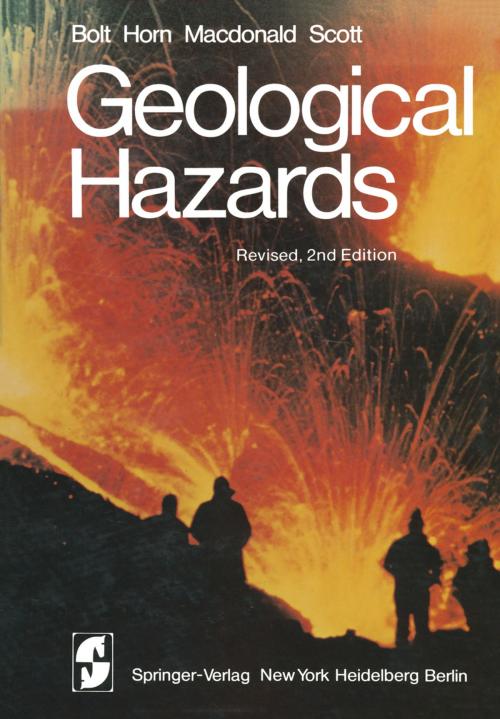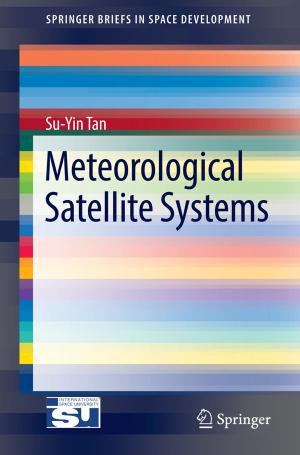Geological Hazards
Earthquakes - Tsunamis - Volcanoes - Avalanches - Landslides - Floods
Nonfiction, Science & Nature, Science, Earth Sciences, Geology| Author: | B.A. Bolt, W.L. Horn, G.A. MacDonald, R.F. Scott | ISBN: | 9781461571018 |
| Publisher: | Springer New York | Publication: | November 9, 2013 |
| Imprint: | Springer | Language: | English |
| Author: | B.A. Bolt, W.L. Horn, G.A. MacDonald, R.F. Scott |
| ISBN: | 9781461571018 |
| Publisher: | Springer New York |
| Publication: | November 9, 2013 |
| Imprint: | Springer |
| Language: | English |
Growth of population, communication and interdependence among countries has sharpened the impact of natural disasters. Not only have calamities and miseries been given wider publicity, but the realization has grown that through rational study and foresight much can be done to mitigate these hazards to life and social wellbeing. In this book we present a summary account of hazards which nowadays are usually classified as geological: earthquakes, faulting, tsunamis, seiches, vol canoes, avalanches, rock and soil slides, differential settlement and liquefaction of soil, and inundation. The book is aimed first at the general reader who is interested in studying the history of such hazards and examining ways that risk can be reduced even if all dangers cannot be eliminated. We also hope that the book will be useful to college students in introductory courses in geology, engineering, geography, country and urban planning, and in environmental studies. We have tried to bring dut for the students the problems that remain to be solved.
Growth of population, communication and interdependence among countries has sharpened the impact of natural disasters. Not only have calamities and miseries been given wider publicity, but the realization has grown that through rational study and foresight much can be done to mitigate these hazards to life and social wellbeing. In this book we present a summary account of hazards which nowadays are usually classified as geological: earthquakes, faulting, tsunamis, seiches, vol canoes, avalanches, rock and soil slides, differential settlement and liquefaction of soil, and inundation. The book is aimed first at the general reader who is interested in studying the history of such hazards and examining ways that risk can be reduced even if all dangers cannot be eliminated. We also hope that the book will be useful to college students in introductory courses in geology, engineering, geography, country and urban planning, and in environmental studies. We have tried to bring dut for the students the problems that remain to be solved.















